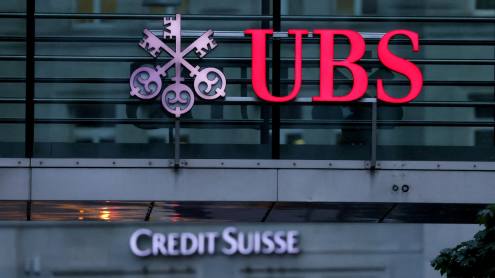With political turmoil in major emerging markets such as South Africa and trade sanctions on Russia, not to mention serious upheaval in Brazil, oil-importer Turkey is in a position to stand out from the crowd. And while the country's financial markets may be small, the sector is seen as lively and inventive.
Turkey has an established fixed-income market; however in 2015 – with a handful of exceptions – Turkish companies were simply not issuing benchmark bonds. The outlook was so grim that the CEO of Garanti Bankasi, Fuat Erbil, predicted in January of this year that no Turkish bank would issue a Eurobond throughout the whole of 2016.
Bond market rally
However, as international oil prices rallied, Mr Erbil's prediction proved wide of the mark. The spell was broken on February 1, when state-owned Türk Eximbank issued a five-year $500m bond with a 5.4% coupon. The Turkish bond market as a whole rallied with a spate of high-value issuances.
Turkey's largest holding company, Koc Holdings, which is owned by one of the country's richest and most prominent families and rated more creditworthy than the Turkish sovereign, issued a $750m seven-year Eurobond on March 16 arranged by HSBC, BNP Paribas, JPMorgan and Citigroup.
On March 30, Turkiye IS Bankasi, the domestic leader on the Eurobond market, announced plans for a five-and-a-half-year dollar Eurobond and went on to issue $750m. The bond was four times oversubscribed. By early April, total issuance of Turkish corporate bonds hit $2.5bn, already surpassing the total for the whole of 2015.
The European Bank for Reconstruction and Development (EBRD) has begun working with Turkish companies to develop the country's capital markets. In late January, the EBRD acted as an anchor investor in a $70m three-year bond – arranged with the investment arm of local lender Akbank – from construction firm Rönesans Holding, issued in Turkish lira.
A varied offering
There was also variety in the offerings, with Turkey's state-run Ziraat Bankasi applying on February 28 to sell more than $500m of Islamic bonds, or sukuk, denominated in Turkish lira. In March, Turkey's Yapi Kredi even issued Basel III-compliant Tier 2 subordinated debt, becoming the first European bank to do so in 2016.
“Since the beginning of the year, the Turkish capital markets, from bonds to equities, have been doing better than they were in 2015,” says Alper Akalin, an analyst at Denizbank's investment arm, Deniz Yatirim. “This year, we see a different picture: emerging markets have been positive in general and Turkey in particular has been standing out among them.”
However, Mr Akalin is not quite so optimistic about the future. “The free-flowing monetary policy of the US and the European central banks have played a major role in the rally and there is always a question mark about being so affected by external decision making,” he says.
Accommodative messages to the market from the major central banks have prompted a rally in Turkish assets since February, along with other emerging markets, according to Sadık Çulcuoğlu, the head of capital markets advisory at Yapi Kredi's investment arm.
“The Turkish sovereign and banks in particular seized the opportunity and came back to the Eurobond market, printing $4.3bn new issuance in the quarter. Yapi Kredi Bank’s issuance was of particular importance because it would open the way for other banks to follow,” he says.
However, parts of the local bond market, which has been the key to capital market activity over the past few years in Turkey, have still had a difficult start to the year owing to credit concerns. At the end of 2015, outstanding local bond issues rose to a level of $15.5bn, 18% of which has been issued by non-financial corporate firms.
Investor sentiment is still negative for non-financial firms, according to Mr Çulcuoğlu. The volume of new issuance in the corporate segment stood at about $280m in the first quarter of 2016, about half of the level seen in the first quarter of 2015.
“Overall, defaults are expected to come to the market at some point,” says Mr Çulcuoğlu. “But so far credit events are relatively contained and there isn't much sign of greater stress. This is, in a way, helping the market to discipline itself with measures to improve credit quality and disclosure standards.”
Enter the pension funds?
“High inflation and the ensuing high interest rate environment has barred the evolution of many capital market products, including private sector bonds and wealth management services by the capital market institutions,” says Caglan Mursaloglu, deputy CEO of IS Investment.
“Turkey has been adept at establishing traditional investment products and their underlying markets but several factors, including macro structure, investment culture and legal infrastructure, have slowed down this progress to more complex and contemporary capital market services.”
According to Ms Mursaloglu, Turkey nonetheless has advanced legal and human capital infrastructure at the ready, should the challenges of sticky, high inflation and low savings rates be resolved. “We still think Turkish capital markets are ripe for progress. The increasing penetration of the private pension business is a big plus for the country,” she says.
In Turkey, the assets under management of private pension funds currently account for about 3% of gross domestic product (GDP), but capital market analysts expect the share to reach 10% by 2021 as auto-enrolment takes effect.
“This is the biggest insurance for the Turkish capital markets to evolve in the future. Through that, capital markets will be able to provide more funds with longer maturities to a variety of capital market service seekers,” says Ms Mursaloglu.
Stock market sensitivity
While the bond market has shown some positive signs, Turkey's stock market has been a little quieter. The stock market's key index, the BIST 100, is up by about 18% overall in the past five years. However, the past year has been tough for Turkish equities and in the first few months of 2016, the market had contracted by about 2%. However, as of the beginning of April, the index was up 14% on the start of 2016.
Borsa Istanbul was formed in 2013 through a merger of its predecessor, the Istanbul Stock Exchange, and the country's gold and derivatives exchanges. The Turkish government now has plans, modelled on its success in making Istanbul airport an international air travel hub, to make Istanbul an international financial centre.
The EBRD is involved here too. In December 2015, a major deal overseen by the Turkish deputy prime minister, Mehmet Şimşek, saw the EBRD acquire a 10% stake in Borsa Istanbul, in what the Turkish government claimed marked the beginning of a “strategic partnership” between the EBRD and the Turkish exchange.
In contrast with the success of Turkey as an air travel hub, the stock market has not yet emerged as a world leader.
“Turkey is very capital poor – in general, firms in Turkey do not have easy access to funds inside the country,” says Ozan Sakar, the managing director of Descartes Capital Advisors, a London and Istanbul-based firm that advises foreign investors in Turkey.
“Last year was particularly bad in terms of access to capital, but this year it is beginning to open up, so we will have to see if that filters through to the stock market. It should not be forgotten that the Turkish market is small – it is really more comparable to that of Brazil rather than Russia or the Middle East.”
Low savings
According to Mr Sakar, Turkey's stubbornly low savings rate is the root of the problem. There has been little concerted effort on the part of successive governments to remedy this. Consumer credit growth has consistently outstripped the modest growth in savings.
As a result of this capital poverty, companies listed on the stock market are highly susceptible to political risk that adversely affects foreign investment and to external decisions taken by the US Federal Reserve and the European Central Bank.
“There were two elections last year, which is not in itself a good sign. But the second election brought a single ruling party majority. That said, the ruling AK party is very polarising, so one cannot simply judge political stability on that basis and say: It's all right to invest,” says Mr Sakar.
“As for sensitivity internationally, it is almost as if the Turkish stock market is on the verge of crashing every time there is talk of the Fed raising rates.”
External financing woes
When it comes to sovereign financing, the ratings agencies have praised Turkey's “economic resilience and strong fiscal metrics”, in Moody's words, and in particular its low government debt-to-GDP ratio. In its assessment, Standard & Poor's lauded the Turkish government's use of longer maturity bonds to meet public sector financing needs.
However, Turkey's rating remains on the edge of investment grade. In November, S&P affirmed Turkey's BB+/B foreign currency and BBB-/A-3 local currency ratings with a 'negative' outlook. Moody's has Turkey at Baa3 with a 'negative' outlook, and in February, Fitch rated Turkey BBB-, the lowest investment grade, with a 'stable' outlook.
“In terms of the broader credit profile, ongoing fiscal discipline and the continued reduction in government debt is the key support for Turkey’s investment-grade rating,” says Paul Gamble, senior director of the sovereign group at Fitch Ratings.
“That said, high external financing needs are a clear vulnerability for Turkey. If you compare the amount of foreign exchange Turkey needs with its liquid external assets – the international liquidity ratio – then Turkey’s score is the worst of all big emerging markets.”
The yield on Turkey's 10-year dollar-denominated bonds have been increasing in the past 12 months and have reached about 4.8%, up 50 basis points. On top of that, foreign investors sold a record net total of $7.7bn of Turkish government bonds in 2015.
On March 2, Turkey issued a $1.5bn benchmark 10-year dollar-denominated bond, managed by Bank of America Merrill Lynch, Citigroup and Deutsche Bank, with a guideline price of 5.05% to 5.1%.
“The requirement for short-term external financing exposes Turkey to risks, particularly if there is a deterioration in sentiment towards emerging markets that means foreigners are less likely to roll over debt,” says Mr Gamble.
However, he adds that it is not the sovereign that bears most of the risk, saying: “The bulk of this external financing requirement is faced by banks and corporates – sovereign requirements are small.”
The large external financing requirement is a fragile point for Turkey, but it is not a newly developed weakness. Banks and corporates have been consistent in finding ways to roll over their debt.
To address the problem in the long term would be a formidable task, according to Mr Gamble. “There would need to be structural changes in the economy to shift the composition of growth from consumption to investment, which will allow an increase in the domestic productive base,” he says.
The lesser evil
Mr Alkalin at Deniz Yatirim points to a certain volatility in Turkish politics, and the decision making of the current authorities, which make it difficult to take too rosy a forecast of the country's future. The sudden emergence of a conflict between Russia and Turkey came as a surprise to the markets, as did Turkey's more aggressive foreign policy in Syria.
“I'm afraid Turkey has a tendency to bring problems on itself out of the blue,” says Mr Alkalin.
With Turkey having agreed a deal with the EU to receive and resettle migrants, and the government's closer co-operation with the US in combating the rise of the Islamic State group, there are signs of a more moderate and conciliatory stance in Turkey towards the world powers.
“Turkey had real opportunities because of its position as an oil importer among emerging markets and we didn't capitalise fully on this because of the volatility of the political scene,” says Mr Alkalin.
“I can't be an optimist, but we shouldn't be too pessimistic either: Turkey is neither in the black or the white. And the Turkish market may still be the lesser evil among the emerging markets.”












